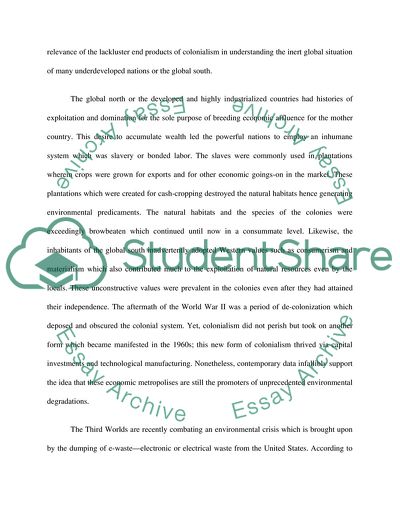Cite this document
(Environmental Colonialism Essay Example | Topics and Well Written Essays - 2250 words, n.d.)
Environmental Colonialism Essay Example | Topics and Well Written Essays - 2250 words. Retrieved from https://studentshare.org/social-science/1714188-sociology-world-cities
Environmental Colonialism Essay Example | Topics and Well Written Essays - 2250 words. Retrieved from https://studentshare.org/social-science/1714188-sociology-world-cities
(Environmental Colonialism Essay Example | Topics and Well Written Essays - 2250 Words)
Environmental Colonialism Essay Example | Topics and Well Written Essays - 2250 Words. https://studentshare.org/social-science/1714188-sociology-world-cities.
Environmental Colonialism Essay Example | Topics and Well Written Essays - 2250 Words. https://studentshare.org/social-science/1714188-sociology-world-cities.
“Environmental Colonialism Essay Example | Topics and Well Written Essays - 2250 Words”. https://studentshare.org/social-science/1714188-sociology-world-cities.


